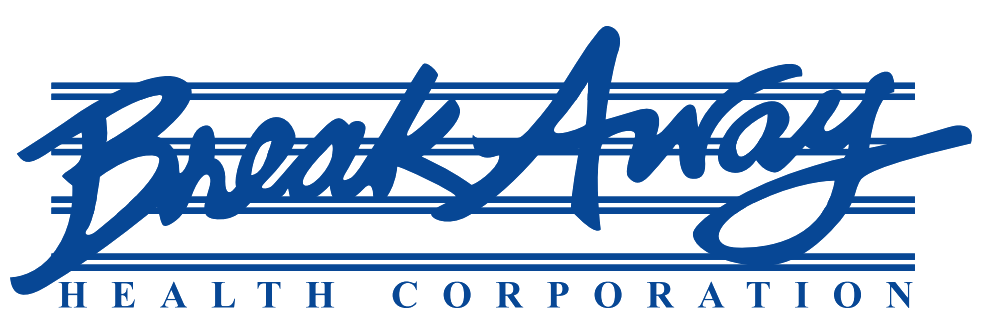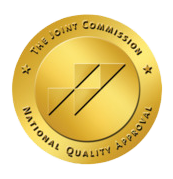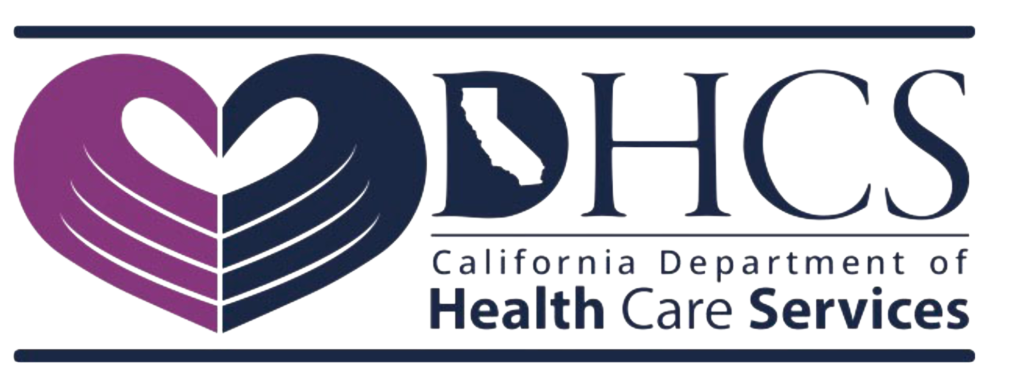Key Takeaways
- Breakaway Health uses safe, proven medications to reduce withdrawal symptoms and support recovery for opioids, alcohol, benzos, and stimulants.
- Medical supervision is essential during withdrawal to monitor health, adjust medications, and prevent serious complications.
- Each treatment plan is personalized based on your drug history, health, and specific withdrawal risks for a safer, more effective detox.
- Medications are combined with therapy and support, including PHP, IOP, teen care, and alumni services for long-term healing.
Are you or a loved one facing the symptoms of drug withdrawal? It can feel overwhelming. The shakes, cravings, and emotional chaos make it a tough battle. At Breakaway Health in Costa Mesa, California, remember you don’t have to do this alone.
Our supportive team specializes in drug withdrawal procedures and uses trusted, evidence-based medications to ease your symptoms. Whether it’s alcohol, opioids, or benzos, there are safe options to stabilize your system and reduce relapse risk.
We’re not just another clinic; we are a family-owned addiction and mental health center with over 33 years of experience. At our beachside facility, you’ll receive personalized care that addresses both your symptoms and the deeper causes of addiction, including medical assessments, withdrawal medication, therapeutic support, and more.
If withdrawal symptoms are holding you back, we can help. Call Breakaway Health now to ask about our medications for drug withdrawal. A simple phone call could change your life.
The Withdrawal Process
Drug withdrawal is a condition that necessitates monitoring and intervention. Drug consumption makes the brain, as well as the body, adapt and develop physical and mental dependencies. When the drug is discontinued, the body panics and goes into distress, and medical supervision is warranted.
Withdrawal differs widely depending on factors like types of drugs, length of use, dosage, overall health, and use of other medications.
While some of these withdrawal experiences are merely uncomfortable, others can prove to be life-threatening if not treated with adequate medical attention.
In withdrawal, the brain recalibrates its neurochemistry without the drug it has adapted to, forming a basic neurochemical imbalance that instigates physical and psychological symptoms.
Symptoms can range from relative discomfort to life-threatening medical crises. This severe withdrawal reaction underscores the benefit of professional medical supervision of the detoxification process to provide safety and enhance the effectiveness of recovery.
How Medications Help During Withdrawal
In Breakaway Health, we use specific prescriptions to assist people in coping with withdrawal symptoms. These medications curtail cravings, ease anxiety, nausea, and insomnia, block dangerous effects such as seizures and hallucinations, and establish stability, allowing one to concentrate on recovery.
Guidelines affect our drug withdrawal practices from reputable sources such as the National Institute on Drug Abuse (NIDA.gov) and the Substance Abuse and Mental Health Services Administration (SAMHSA.gov). This makes our whole methodology scientifically based and evidence-based practice.
Under the watchful eye of a medical professional, our clinical staff can track your health status and vital signs throughout withdrawal. This allows us to make medication adjustments and address complications promptly. This type of care minimizes risks associated with withdrawal and maximizes the potential for recovery.
All the medications we take affect our body in various ways through withdrawal. Some of them replace the substance in question gradually, allowing for tapering to be done. Some of them block brain receptors to decrease cravings. Some drugs also treat withdrawal symptoms such as anxiety, nausea, and insomnia to ease your transition process and make it more comfortable.
Medications Commonly Used for Drug Withdrawal
Let’s take a look at what medication is used for drug withdrawal depending on the type of substance and individual patient needs.
Opioids (Heroin, Oxycodone, Fentanyl)
Opioid withdrawal can feel unbearable, but there are FDA-approved medications that work effectively under medical supervision. Buprenorphine (Suboxone) reduces cravings and withdrawal symptoms without creating a high, making it an excellent option for long-term recovery support. Methadone is a long-acting medication that prevents painful withdrawal but must be taken under close supervision due to its own potential for dependency.
Clonidine manages physical symptoms like sweating, anxiety, and high blood pressure that commonly occur during opioid withdrawal. While these medications are highly effective, potential side effects must be carefully monitored. Buprenorphine can cause drowsiness, constipation, and respiratory depression in high doses. Methadone requires careful dosing to prevent overdose, and clonidine can cause low blood pressure and excessive sedation.
Alcohol Withdrawal
If you’ve been drinking heavily for a long time, stopping suddenly can be dangerous and potentially fatal. That’s why we use benzodiazepines like Diazepam or Lorazepam to calm the brain and prevent seizures. These medications are crucial for preventing delirium tremens, a severe form of alcohol withdrawal that can be life-threatening.
Anticonvulsants like Gabapentin help manage mood swings and nerve pain associated with alcohol withdrawal. Naltrexone reduces the pleasure from drinking and can prevent relapse by blocking the euphoric effects of alcohol. Wondering which medication is used for both alcohol and drug withdrawal? Gabapentin is one that applies to both, making it especially useful during detox for patients with multiple substance dependencies.
Side effects of alcohol withdrawal medications require careful monitoring. Benzodiazepines can cause excessive sedation, memory problems, and potential for dependency if not properly managed. Gabapentin may cause dizziness, fatigue, and coordination problems. Our medical team closely monitors these effects to ensure safe and effective treatment.
Benzodiazepines (Xanax, Ativan)
Withdrawal from benzos can be tricky—and even dangerous—if not done with professional support. The withdrawal process for benzodiazepines requires an extremely gradual approach due to the high risk of seizures and other life-threatening complications. We slowly taper doses using long-acting benzodiazepines and sometimes pair this with antidepressants or anti-anxiety medications for mental health support and sleep aids to help with severe insomnia.
Our team creates a customized plan based on your usage history, dosage, duration of use, and mental health needs. The tapering process can take weeks or months, depending on these factors. Side effects during benzodiazepine withdrawal can include severe anxiety, panic attacks, sensory sensitivity, and in rare cases, seizures. For more information about Xanax withdrawal effects, our specialized team can provide detailed guidance.
Stimulants (Cocaine, Methamphetamine)
While there are no FDA-approved medications specifically for stimulant withdrawal, our medical team uses various approaches to manage symptoms. Antidepressants may help with the severe depression and fatigue that often accompany stimulant withdrawal. Sleep medications can address the severe insomnia that typically occurs.
The withdrawal process for stimulants is primarily psychological rather than physical, but the mental health impact can be severe. Medications to manage anxiety, depression, and sleep disturbances are often necessary to prevent relapse during this vulnerable period.
Comprehensive Medical Supervision
Medical supervision at Breakaway Health extends far beyond simply prescribing drug withdrawal medication. Our comprehensive approach includes continuous monitoring of vital signs, regular assessment of withdrawal symptoms, adjustment of medications based on your response, management of any complications that arise, and emotional support throughout the process.
Our medical team understands that withdrawal affects every aspect of your health. We monitor cardiovascular function, neurological status, hydration levels, and nutritional needs. This holistic approach ensures that all aspects of your physical and mental health are addressed during the withdrawal process.
Integrating Medication with Comprehensive Care
Medication for drug withdrawal helps calm the storm, but it’s only one part of our full drug withdrawal medical procedure. At Breakaway Health, we combine medications with compassionate, evidence-based care through our Partial Hospitalization Program (PHP) providing intensive treatment without full-time hospitalization, Intensive Outpatient Program (IOP) offering flexible options for people transitioning out of detox, Night Programs for people who need support after work hours, Teen Treatment because addiction doesn’t only affect adults, and Aftercare and Alumni Groups providing lifelong support with no added cost.
We also provide referrals and transportation for detox placement services when medical detox is required before entering our programs. This comprehensive approach ensures that you receive the right level of care at every stage of your recovery journey.
The Importance of Professional Assessment
To decide on the correct drug for drug withdrawal, a psychiatric and medical evaluation is required. Several key aspects are considered, as withdrawal can be complex and even risky.
Substance Use History: We critically review your history of usage and drug use today to provide a better understanding of your addiction.
Physical and Mental Well-being: We evaluate your overall physical and mental health so that we can see whether you have any physical or psychological illness that will affect your withdrawal process.
Withdrawal History: By recognizing your previous attempts at withdrawal, we can anticipate any complications and adjust our strategy accordingly.
Present Medications and Medical Sickness: Awareness of present medications and medical sickness prevents us from causing any adverse reactions and keeps you in good health under the right control.
Family History: Being aware of your family history of mental illness and addiction leaves some hints about your case, which could be genetic or environmental.
This assessment allows our medical staff to design a personalized drug withdrawal program. We tailor our approach to meet your individual needs, promoting safety and effectiveness. Withdrawal for each patient is tailored; the use of a standardized protocol can be ineffective and risky. By tailoring our methods to your circumstances, we enhance your opportunity for effective and safer withdrawal.
Managing Side Effects
All drug withdrawal medication can produce side effects, and our medical team is trained to recognize and manage these effectively. Common side effects across different withdrawal medications include drowsiness or sedation, changes in blood pressure, digestive issues, mood changes, and sleep disturbances.
Our medical supervision includes regular monitoring for these side effects and immediate intervention when necessary. We adjust dosages, change medications, or add supportive treatments to ensure your safety and comfort throughout the withdrawal process.
Your Path to Recovery Starts Here
If you’ve been searching for answers about what medication is used for drug withdrawal, the most important thing to know is this: relief is possible. You don’t need to fight through withdrawal alone. At Breakaway Health in Costa Mesa, we offer medications that are safe, effective, and fully integrated into a compassionate care plan.
For those seeking addiction recovery on the Costa Mesa, our beachside location provides the perfect environment for healing. Your safety matters. Your comfort matters. Your recovery matters.
Call Breakaway Health today to learn more about our programs, insurance options, and how we can help you or a loved one start fresh. We’ll walk with you every step of the way, providing the medical supervision, drug withdrawal medication, and comprehensive support you need to reclaim your life from addiction.
Frequently Asked Questions (FAQs)
1. What medications help the most with drug withdrawal?
Buprenorphine, methadone, naltrexone, and certain benzodiazepines are among the most effective, depending on the substance you’re withdrawing from.
2. Can I detox from drugs at home using medication?
It’s risky. Some symptoms can be life-threatening. We strongly recommend professional supervision like what we offer at Breakaway Health.
3. Is there a single medication that works for both alcohol and drug withdrawal?
Yes, Gabapentin is used in both alcohol and drug detox cases. Your treatment team will decide what’s right for your situation.
4. How long do I need to take medication for withdrawal?
This depends on the severity of your addiction, your history, and the substance involved. We create a personalized plan for each client.
5. Do you offer medication-assisted treatment at Breakaway Health?
Yes, we integrate drug withdrawal medication into a full support system including therapy, aftercare, and family education.







